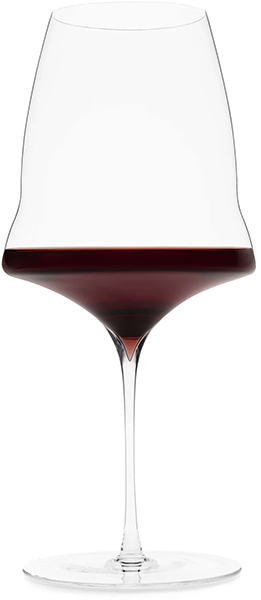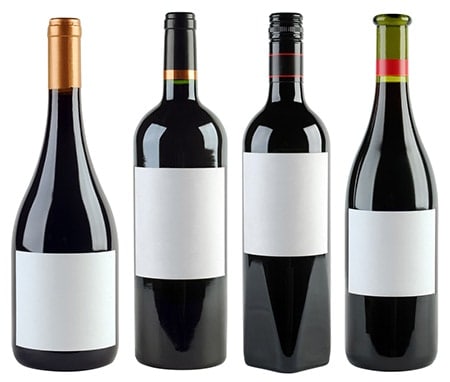Carbs in Red Wine: Is Red Wine High in Carbs?

In 2023, we're more health conscious than ever.
Are your food and drinks sustainable, organic, vegan, carbon neutral...? The list is endless!
Wine is no different.
Increasingly, I'm finding that wine labels contain more information than ever about how grapes are farmed and how the wine is made.
In this guide, we're going to discuss carbohydrates (carbs) in red wine.
Is red wine calorific? How does it compare to other wine varieties?
How Many Carbs in a Glass of Red Wine?
I am pleased to announce that wine is a generally a low-carb drink, and more specifically one of the few alcoholic beverages that contains a relatively low number of carbohydrates. This is a reason to celebrate in my book!
So how many carbs in a glass of red wine you ask?
Well, a medium glass of red wine (corresponding to approximately 5 ounces or 150ml) normally contains less than 5 grams of carbs, depending on which kind.
The table below shows how many carbs are in a glass of red wine for a number of different varieties.
[ws_table id="8"]
* These numbers need to be considered as averages, as actually there may be a great variability among different producers and vintages.
As you can see, the lighter Pinot Noir has the least carbs and the fuller bodied red, Zinfandel has the most carbs when it comes to red wine.
However, this is just coincidental and it's not the body of the wine that determines its carbohydrate content.
Let's find out how carbs are calculated in wine.
What Are Carbohydrates and Where Do They Come From?
Well, first of all, in order to understand the differences between different types of wine, and why they contain more or less carbs, I think it’s important to give you a little intro on what carbs really are and how do they end up in wine.
Carbohydrates (or carbs) are the main energy source for the human body. They should cover about 60% of daily calories need, of which at least ¾ must be complex carbohydrates and the rest simple ones.
The carbohydrates or simple sugars (glucose, fructose, galactose, sucrose and lactose), consist of one or two molecules, and are normally present in sweets, ice cream, jams, fruit desserts, milk and guess what? Wine.
Complex carbohydrates (polysaccharides), on the other hand, consist of a large number of composite molecules and are present in bread, pasta, rice, corn, potatoes, legumes, and a whole host of other foods.
From the digestion of carbohydrates the body obtains the essential glucose for the production of energy; so obviously they have a primary role in our diet.

How Does This Relate to Carbs in Wine?
Going back to wine, the only carbohydrates contained are glucose and fructose.
They are present in small amounts because almost all sugars, initially present in the grape juice are converted into alcohol, heat, and CO2 by the yeasts during the fermentation process.
So the total carbs actually contained in a finished dry wine are those leftover after fermentation: the so called residual sugars whose content depends on a number of factors including the particular grape variety and of course how the fermentation is carried out and when it is stopped.
This means that, in sweet, off dry and fortified wines (or simply in those wines where the winemaker wants to have a more relevant amount of residual sugars), the amount of carbs will be higher because the fermentation will be stopped before all sugars have been consumed by the yeasts.

How Are Carbs Connected to the Amount of Calories in Wine?
For those that are just looking into a healthy lifestyle without having to miss the pleasure of wine and want to consider the total count of calories, it is actually interesting to know that, contrarily to what most people may think, wine calories are mainly connected to alcohol more so than carbohydrates.
And that’s what you should be really careful with; in fact a gram of alcohol has normally around 7 calories, while a gram of carbs has only 4. And, as a matter of fact, alcohol contains calories with no nutritional value.
Unfortunately (for me and all red wine lovers), red dry wines tend to have a higher alcohol content than white wines resulting in a higher amount of calories.
How Does Red Wine Compare to Other Drinks?
So wine definitely has plenty of beneficial advantages when compared to other drinks, either alcoholic or not.
Talking about alcoholic beverages, for example, while spirits like vodka, whiskey, rum and tequila don’t have any carbs at all, on the other hand their alcohol content correspond to a higher amount of calories
Other drinks such as beer or liqueurs instead have a higher amount of carbs, same as a lot of non-alcoholic carbonated drinks that we tend to drink often unaware of their composition.
Among wines, instead, reds are those with the lowest amount of carbs, generally less than whites and surely less than sweet, off dry and fortified wines.
Here's how the carb content of red wine compares to other alcoholic drinks like beer and whisky:
Beverage | Serving Size (Ounces) | Average Carbs (g) |
|---|---|---|
Red Wine | 5 | 3 - 4 |
White Wine | 5 | 3 - 4 |
Sparkling Wine | 5 | 1 - 2 |
Regular Beer | 12 | 12- 15 |
Light Beer | 12 | 3 - 7 |
Whisky (No mixer) | 1.5 | 0 |
Can Wine be Part of a Healthy Lifestyle?
The answer is yes, of course.
Like with most things, wine (or any alcohol) should be consumed in moderation.
Stay up to date with drinking guidelines and try and maintain a healthy lifestyle by eating well and regularly exercising.
And, if you are on a low-carb diet, the best choice is probably to stick to the red wines that have less carbs such as a Pinot Noir.
And the most important lesson of all.
Don't waste those precious calories on bad wine 🙂
